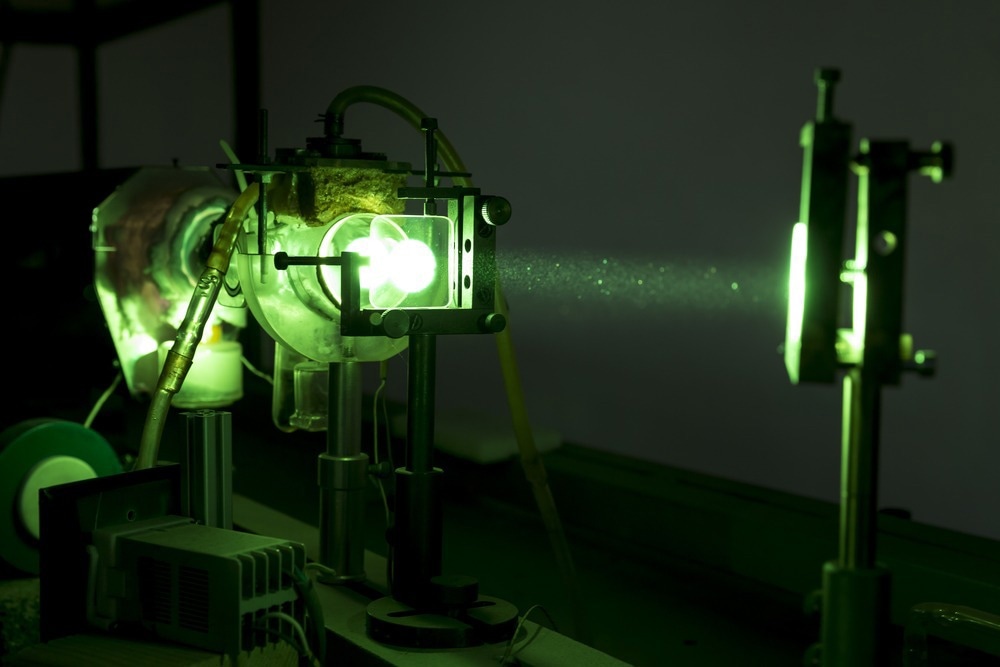An international group of researchers from the Acceleration Consortium at the University of Toronto conducted experiments on organic solid-state lasers, which are economical and efficient. Cloud-based technology supports the replication of experimental results quickly. This research was published in the journal Science.

Image Credit: Belish/Shutterstock.com
Organic Solid-State Lasers (OSLs) are very promising for many applications because of their efficiency, versatility, and color tunability, but they are hard to create, and finding all of the effective new materials would take several lives, with over 150,000 conceivable experiments to be conducted.
Hardly 10 to 20 new OSL materials have been tried in the preceding few decades. Using self-driving lab (SDL) technology, researchers from the Acceleration Consortium at the University of Toronto took on this challenge. In a matter of months, they were able to synthesize and test over 1000 possible OSL materials and identify at least 21 of the best OSL gain candidates.
An SDL streamlines the process of finding novel materials, such as materials with remarkable lasing capabilities, by utilizing cutting-edge technology like robotic synthesis and artificial intelligence. Up until now, SDLs have often only been allowed in one physical lab in one place.
The research team applied the theory of distributed experimentation in which tasks are split across various research sites to expedite the common aim. This study involved labs in Illinois, Canada (Toronto and Vancouver), Scotland (Glasgow), Japan (Fukuoka), and the United States (Glasgow).
This approach allowed each lab to contribute its special knowledge and resources, which was ultimately very important to the project's success. In addition to improving productivity, this decentralized workflow managed by a cloud-based platform facilitated the quick replication of experimental results, democratizing the discovery process and hastening the advancement of next-generation laser technology.
What this paper shows is that a closed-loop approach can be delocalized, researchers can go all the way down from the molecular state down to devices and you can accelerate the discovery of materials that are very early in the process of commercialization, the team designed an experiment that went all the way down from molecule to device- with the final devices being made in Japan. They were scaled up in Vancouver and then transferred to Japan for characterization.
Dr. Alán Aspuru-Guzik, Director, Acceleration Consortium, Department of Chemistry, University of Toronto
The discovery of these new materials has significantly advanced molecular optoelectronics. It has established a standard for the next delocalized discovery campaigns in materials research and self-driving labs and cleared the way for improved performance and functionality in OSL devices.
Journal Reference:
Kalthoff, S. F., et al. (2024) Delocalized, asynchronous, closed-loop discovery of organic laser emitters. Science. doi.org/10.1126/science.adk9227.